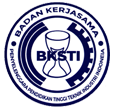Effects of Perceived Behavioral Control and Attitude on Knowledge Sharing among Engineers in Oil and Gas Companies
Abstract
To enhance the job performance of engineers in the oil and gas sector, their knowledge and skills should be constantly updated through knowledge sharing. Perceived behavioural control and attitude have been identified as factors that contribute to effective knowledge sharing among employees. However, very little is known about perceived behavioural control and attitude toward knowledge sharing in the Iraqi oil and gas sector. Therefore, this study investigates the relationship between engineer’s perceived behavioural control and attitude on their intention towards knowledge sharing in public oil and gas firms in Iraq. To participate in the study, 240 engineers from oil and gas companies in Iraq were randomly selected. A questionnaire designed in a Likert scale format was used for the data collection. The data were analysed using descriptive statistical analysis and Correlation analysis. The results of the analysis show that there is a positive relation between engineer’s perceived behavioural control and attitude on their intention towards knowledge sharing in public oil and gas firms in Iraq. The study makes some recommendations on how to increase engineers’ perceived behavioural control and attitude and eventually increase their intention towards knowledge sharing.
Keywords
Full Text:
PDFReferences
Abdillah, M. R., Lin, C.-T., Anita, R., & Suroto, B. (2018). Knowledge-sharing behavior among banking officers in Indonesia. Journal of International Studies, 11(2). https://doi.org/10.14254/2071-8330.2018/11-2/10
Aitken, R., Watkins, L., Williams, J., & Kean, A. (2020). The positive role of labelling on consumers’ perceived behavioural control and intention to purchase organic food. Journal of Cleaner Production, 255, 120334. https://doi.org/10.1016/j.jclepro.2020.120334
Ahmed, Y. A., Ahmad, M. N., Ahmad, N., & Zakaria, N. H. (2019). Social media for knowledge-sharing: A systematic literature review. Telematics and Informatics, 37, 72-112. https://doi.org/10.1016/j.tele.2018.01.015
Ajzen, I., & Fishbein, M. (2000). Attitudes and the attitude-behavior relation: Reasoned and automatic processes. European Review of Social Psychology, 11(1), 1-33. https://doi.org/10.1080/14792779943000116
Ali, A. A., & Dominic, P. (2018). The influence of technological factors on individual's intention towards knowledge sharing practice. International Journal of Business Information Systems, 27(3), 331-348. https://doi.org/10.1504/ijbis.2018.10010584
Alhassan, H., Asante, F. A., Oteng-Ababio, M., & Bawakyillenuo, S. (2018). Application of theory of planned behaviour to households’ source separation behaviour in Ghana. Management of Environmental Quality: An International Journal. https://doi.org/10.1108/meq-10-2017-0122
Arvola, A., Vassallo, M., Dean, M., Lampila, P., Saba, A., Lähteenmäki, L., & Shepherd, R. (2008). Predicting intentions to purchase organic food: The role of affective and moral attitudes in the Theory of Planned Behaviour. Appetite, 50(2-3), 443-454. https://doi.org/10.1016/j.appet.2007.09.010
Boateng, H., Dzandu, M. D., & Agyemang, F. G. (2015). The effects of demographic variables on knowledge sharing. Library Review, 64(3), 216-228. https://doi.org/10.1108/lr-07-2014-0080
Chowdhury, M., Prayag, G., Patwardhan, V., & Kumar, N. (2020). The impact of social capital and knowledge sharing intention on restaurants’ new product development. International Journal of Contemporary Hospitality Management. https://doi.org/10.1108/ijchm-04-2020-0345
Curtis, M. B., & Taylor, E. Z. (2018). Developmental mentoring, affective organizational commitment, and knowledge sharing in public accounting firms. Journal of Knowledge Management. https://doi.org/10.1108/jkm-03-2017-0097
Daxini, A., Ryan, M., O’Donoghue, C., & Barnes, A. P. (2019). Understanding farmers’ intentions to follow a nutrient management plan using the theory of planned behaviour. Land Use Policy, 85, 428-437. https://doi.org/10.1016/j.landusepol.2019.04.002
Dey, T., & Mukhopadhyay, S. (2020). Modelling Knowledge Sharing Behavior With Behavioral Intention and Interpersonal Trust: The Role of Affective Commitment. In Current Issues and Trends in Knowledge Management, Discovery, and Transfer (pp. 148-170): IGI Global. https://doi.org/10.4018/978-1-7998-2189-2.ch007
Dinc, M. S., & Budic, S. (2016). The impact of personal attitude, subjective norm, and perceived behavioural control on entrepreneurial intentions of women. Eurasian Journal of Business and Economics, 9(17), 23-35. https://doi.org/10.17015/ejbe.2016.017.02
Dutta, B., Madalli, D. P., Tangaraja, G., Rasdi, R. M., Ismail, M., & Samah, B. A. (2015). Fostering knowledge sharing behaviour among public sector managers: a proposed model for the Malaysian public service. Journal of Knowledge Management. https://doi.org/10.1108/jkm-11-2014-0449
Fauzi, M. A., Tan, C. N.-L., & Ramayah, T. (2018). Knowledge sharing intention at Malaysian higher learning institutions: The academics’ viewpoint. Knowledge Management & E-Learning: An International Journal, 10(2), 163-176. https://doi.org/10.34105/j.kmel.2018.10.011
Fauzi, M. A., Tan, C. N. L., Thurasamy, R., & Ojo, A. O. (2019). Evaluating academics’ knowledge sharing intentions in Malaysian public universities. Malaysian Journal of Library & Information Science, 24(1), 123-143. https://doi.org/10.22452/mjlis.vol24no1.7
Giampietri, E., Verneau, F., Del Giudice, T., Carfora, V., & Finco, A. (2018). A Theory of Planned behaviour perspective for investigating the role of trust in consumer purchasing decision related to short food supply chains. Food Quality and Preference, 64, 160-166. https://doi.org/10.1016/j.foodqual.2017.09.012
Han, S.-h. (2018). The antecedents and dimensionality of knowledge-sharing intention. European Journal of Training and Development. https://doi.org/10.1016/j.foodqual.2017.09.012
Ismail, H. A. (2020). Users' Intention to Share Knowledge Using Wiki in Virtual Learning Community. International Journal of Information and Communication Technology Education (IJICTE), 16(1), 1-15. https://doi.org/10.4018/ijicte.2020010101
Javaid, J., Soroya, S., & Mahmood, K. (2020). Impact of personal and organizational factors on knowledge sharing attitude of university teachers in Pakistan. The Electronic Library. https://doi.org/10.1108/el-05-2019-0121
Kakhki, M. K., Hadadian, A., Joyame, E. N., & Asl, N. M. (2020). Understanding librarians’ knowledge sharing behavior: The role of organizational climate, motivational drives and leadership empowerment. Library & Information Science Research, 42(1), 100998. https://doi.org/10.1016/j.lisr.2019.100998
Kim, N., & Shim, C. (2018). Social capital, knowledge sharing and innovation of small-and medium-sized enterprises in a tourism cluster. International Journal of Contemporary Hospitality Management. https://doi.org/10.1108/ijchm-07-2016-0392
Lin, C.Y., Huang, C.-K., & Ko, C.-J. (2020). The impact of perceived enjoyment on team effectiveness and individual learning in a blended learning business course: The mediating effect of knowledge sharing. Australasian Journal of Educational Technology, 36(1), 126-141. https://doi.org/10.14742/ajet.4446
Lindsay, S., Sheehan, C., & De Cieri, H. (2020). The influence of workgroup identification on turnover intention and knowledge sharing: the perspective of employees in subsidiaries. The International Journal of Human Resource Management, 31(3), 432-455. https://doi.org/10.1080/09585192.2017.1355836
Luo, J., Qin, L., & Zhang, B. (2020). How Emotional Attachment Effects Intention: The Case of Continuous Knowledge Sharing Intention in Virtual Community. https://doi.org/10.1109/ccdc49329.2020.9164571
Lyu, C., Yang, J., Zhang, F., Teo, T. S., & Mu, T. (2020). How do knowledge characteristics affect firm’s knowledge sharing intention in interfirm cooperation? An empirical study. Journal of Business Research, 115, 48-60. https://doi.org/10.1016/j.jbusres.2020.04.045
Mafabi, S., Nasiima, S., Muhimbise, E. M., Kasekende, F., & Nakiyonga, C. (2017). The mediation role of intention in knowledge sharing behavior. VINE Journal of Information and Knowledge Management Systems. https://doi.org/10.1108/vjikms-02-2016-0008
Martinez, M. G., Zouaghi, F., Marco, T. G., & Robinson, C. (2019). What drives business failure? Exploring the role of internal and external knowledge capabilities during the global financial crisis. Journal of Business Research, 98, 441-449. https://doi.org/10.1016/j.jbusres.2018.07.032
Moghavvemi, S., Sharabati, M., Paramanathan, T., & Rahin, N. M. (2017). The impact of perceived enjoyment, perceived reciprocal benefits and knowledge power on students' knowledge sharing through Facebook. The International Journal of Management Education, 15(1), 1-12. https://doi.org/10.1016/j.ijme.2016.11.002
Mousa, T. S., Jameel, A. S., & Ahmad, A. R. (2019). The Impact of Attitude, Subjective Norm and Information Communications Technology on Knowledge Sharing among Academic Staff. International Journal of Psychosocial Rehabilitation, 23(02), 704-717. https://doi.org/10.1109/aicis51645.2020.00032
Nair, R. S., & Sivakumar, V. (2018). Understanding the effect of psychological capital on knowledge sharing intention–the moderating role of happiness at work. ZENITH International Journal of Business Economics & Management Research, 8(11), 1-11.
Okyere-Kwakye, E., & Nor, K. M. (2020). Examining individual intention to share knowledge with people from other tribes. Knowledge Management & E-Learning: An International Journal, 12(3), 315-343.
Oliveira, T., Araujo, B., & Tam, C. (2020). Why do people share their travel experiences on social media? Tourism Management, 78, 104041.
Queiri, A., Yusoff, W. F. W., & Dwaikat, N. (2015). Explaining generation-Y employees' turnover in Malaysian context. Asian Social Science, 11(10), 126.
Rindfleisch, A., Malter, A. J., Ganesan, S., & Moorman, C. (2008). Cross-sectional versus longitudinal survey research: Concepts, findings, and guidelines. Journal of marketing research, 45(3), 261-279.
Rouibah, K., Lowry, P. B., & Hwang, Y. (2016). The effects of perceived enjoyment and perceived risks on trust formation and intentions to use online payment systems: New perspectives from an Arab country. Electronic Commerce Research and Applications, 19, 33-43.
Sekaran, U., & Bougie, R. (2016). Research methods for business: A skill building approach: John Wiley & Sons. https://doi.org/10.1108/lodj-06-2013-0079
Shang, L., Zhou, J., & Zuo, M. (2020). Understanding older adults' intention to share health information on social media: the role of health belief and information processing. Internet Research. https://doi.org/10.1108/intr-12-2019-0512
Sun, S., Law, R., & Schuckert, M. (2020). Mediating effects of attitude, subjective norms and perceived behavioural control for mobile payment-based hotel reservations. International Journal of Hospitality Management, 84, 102331. https://doi.org/10.1016/j.ijhm.2019.102331
Zhang, P., & Ng, F. F. (2012). Analysis of knowledge sharing behaviour in construction teams in Hong Kong. Construction management and Economics, 30(7), 557-574. https://doi.org/10.1080/01446193.2012.669838
DOI: http://dx.doi.org/10.22441/ijiem.v2i2.11800
Refbacks
- There are currently no refbacks.

This work is licensed under a Creative Commons Attribution-NonCommercial 4.0 International License.
IJIEM - Indonesian Journal of Industrial Engineering & Management
Program Pascasarjana Magister Teknik Industri Universitas Mercu Buana
Kampus Menteng - Gedung Tedja Buana, Floor 4th
Jl. Menteng Raya No. 29 Jakarta Pusat- Indonesia
Tlp.: +62 21 31935454 Fax: +62 21 31934474
http://publikasi.mercubuana.ac.id/index.php/ijiem
Email: [email protected]

This work is licensed under a Creative Commons Attribution-NonCommercial 4.0 International License.
The journal is indexed by:





1.png)
.png)
.png)
.png)







